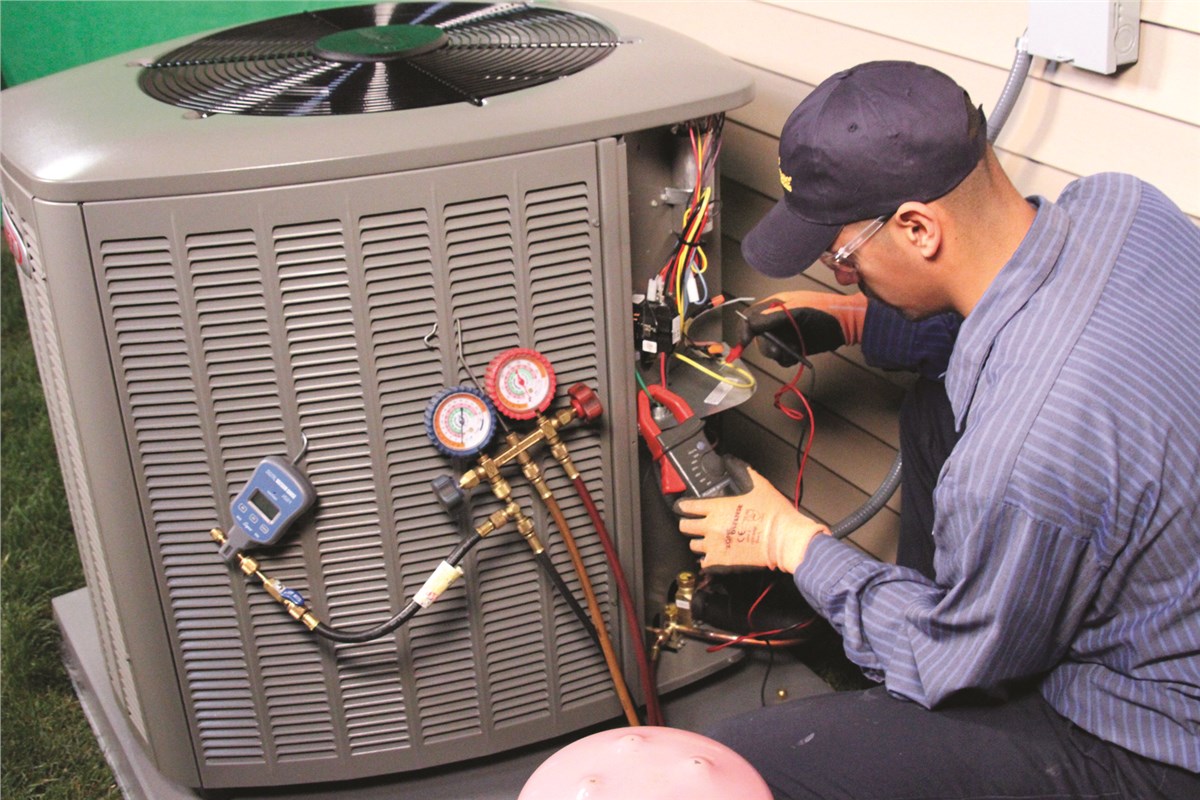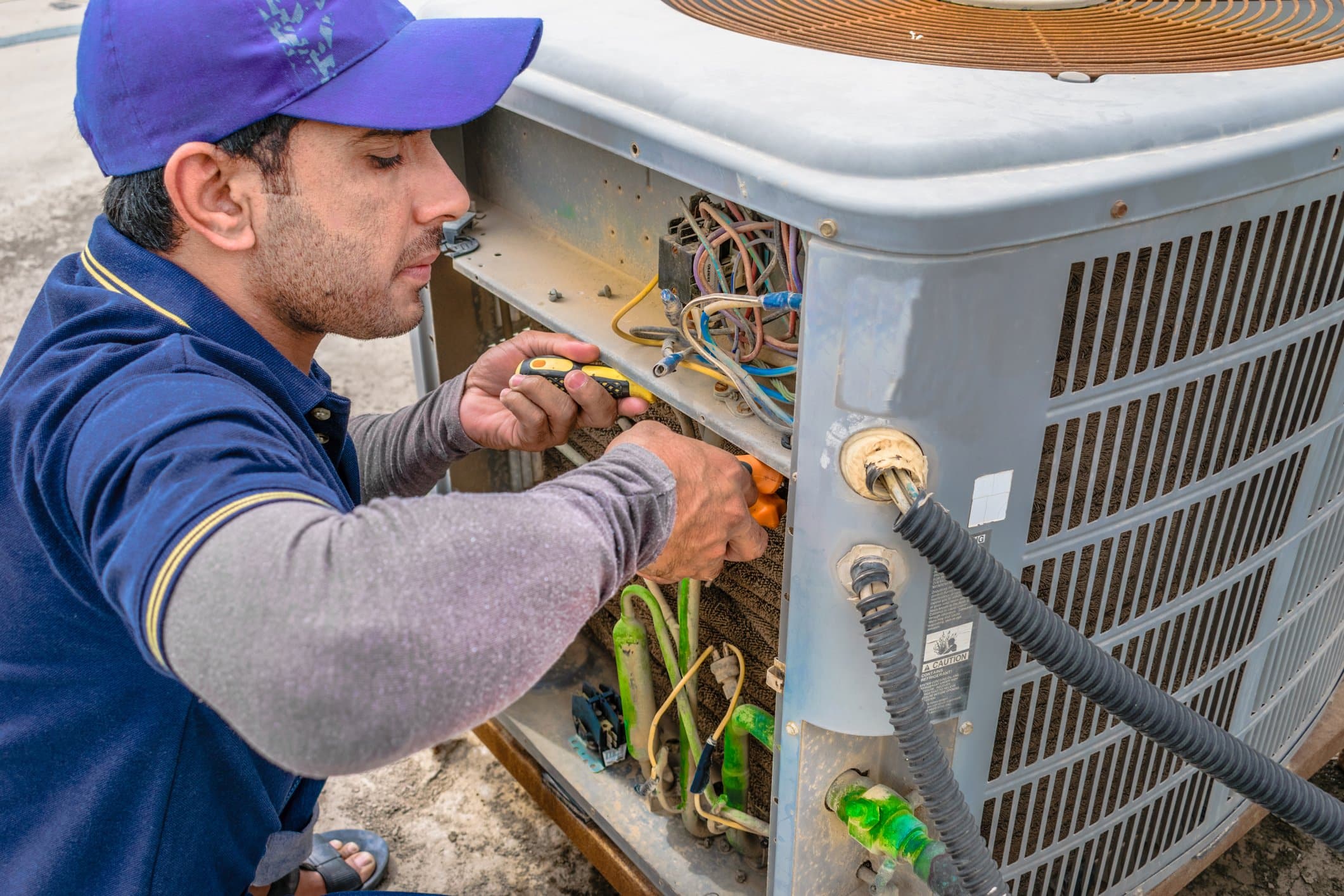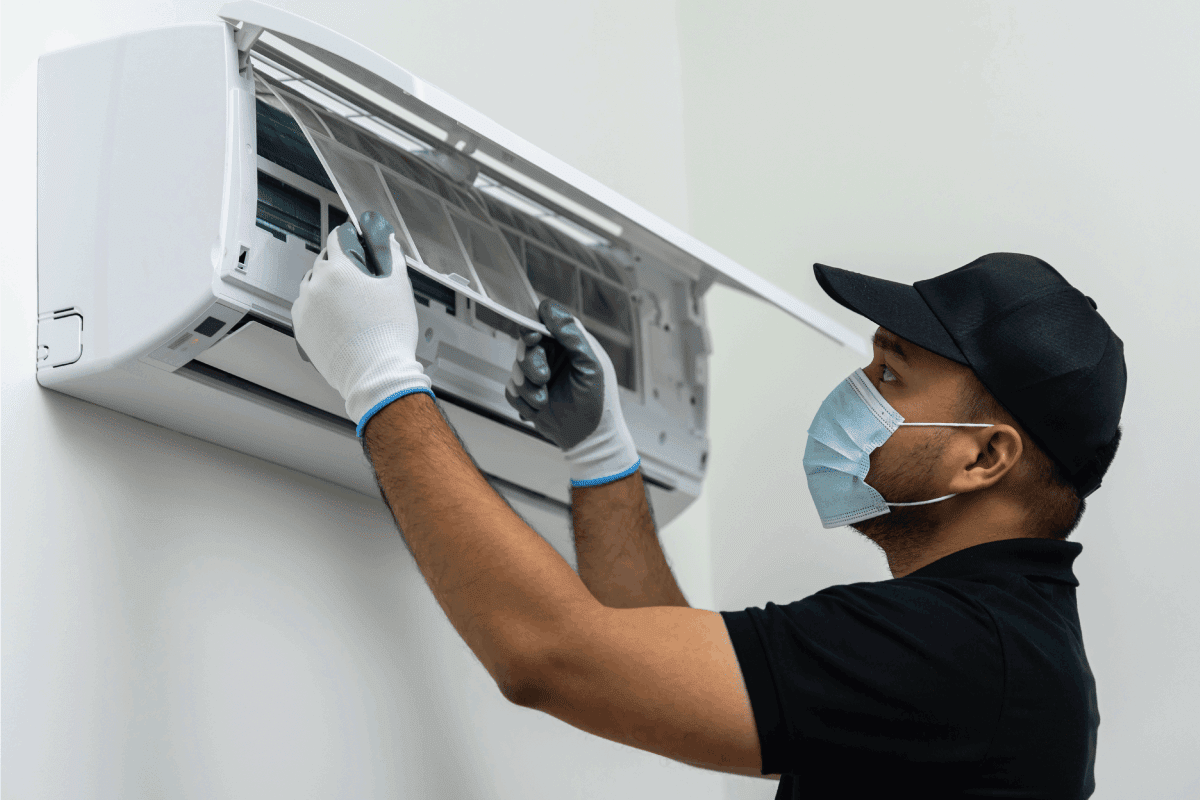When it pertains to your a/c system, addressing water leakages is like putting a bandage on a wound - required for peak functioning. Wondering why your a/c is dripping water? Let's check out the hidden reasons behind this common problem, unravel functional services to fix leakages, and comprehend the importance of punctual fixings.
Stay tuned to reveal the trick to keeping a cool, leak-free setting in your house.
Secret Takeaways
- Normal upkeep prevents AC water leakages by unclogging drainpipe lines.
- Prompt repairs and assessments expand device lifespan and stop mold and mildew development.
- DIY troubleshooting includes checking filters, pumps, and condensate lines.
- Specialist support makes sure proper drainage and addresses underlying problems efficiently.

Typical Causes of AC Water Leaks
One typical factor your a/c system may be leaking water results from a clogged condensate drainpipe line. To prevent this problem, routine upkeep is essential. You can stay clear of clogs by regularly purging the drainpipe line with a combination of bleach and water. This simple maintenance pointer helps maintain the line clear, permitting water to move openly and reducing the risk of leakages.
If you notice water pooling around your air conditioner system, it is very important to attend to the issue promptly. Disregarding the problem can result in water damage and mold development. In many cases, you might require expert help to unblock the drainpipe line efficiently. A licensed specialist can inspect your system, clear any kind of obstructions, and make sure proper drain.
Exactly how to Recognize a Water Leak
If you notice water merging around your AC unit, a typical indication of a leakage, it is very important to quickly determine the resource of the problem. Drip detection is essential in avoiding more damages to your air conditioning system. Beginning by looking for any type of visible indications of water leak, such as puddles or drips around the device. Evaluate the drain line for obstructions or clogs that may be causing water to support. Additionally, look for any kind of cracks or holes in the condensate pan that could be enabling water to escape.
Condensation administration is an additional key facet of identifying a water leak. Make sure the condensate line is properly linked and draining as it should. In some cases, inappropriate installation or damages to the line can bring about leaks. Inspect the insulation around the line too, as any type of damage can trigger condensation to develop in unintended areas.
Do It Yourself Troubleshooting Tips
Wondering just how you can troubleshoot water leakages from your air conditioning system on your own? Here are some do it yourself repairing suggestions to help you deal with the concern efficiently:
- Inspect the Filter: Begin by checking and cleaning up the air filter. A clogged up filter can limit air flow, leading to ice buildup and eventually triggering water leakages.
- Examine the Condensate Pump: Make sure that the condensate pump, responsible for removing excess moisture, is working properly. If it's not working, water might accumulate and leakage.
- Seek Blockages: Check for any kind of clogs in the condensate drainpipe line. Debris or algae accumulation can restrain correct drainage, leading to leaks.
- Examine the Refrigerant Degrees: Reduced refrigerant levels can create the evaporator coil to ice up, leading to water leak. If you suspect this issue, call a specialist for aid.
- Display the Thermostat Settings: Inaccurate thermostat setups can create the system to run longer than required, possibly causing excessive condensation. Change the setups to make sure peak performance and protect against leaks.
Value of Timely Repairs
Addressing water leaks from your air conditioning device without delay is very important to stop more damage and preserve peak efficiency. Prompt repair services supply significant benefits, including extending the life-span of your unit, improving energy effectiveness, and protecting against costly water damage to your property. Neglecting these leakages can bring about mold and mildew growth, structural damage, and prospective carcinogen.

To assure your cooling unit runs smoothly, regular maintenance is important. Basic maintenance suggestions such as cleansing or replacing air filters, checking for blocked drainpipe lines, and evaluating the condensate pan can assist avoid water leaks. In addition, scheduling professional inspections at least yearly can capture any type of potential problems early on and stop them from intensifying right into major issues.
Protecting Against Future Water Leaks
Curious exactly how you can proactively avoid future water leaks from your air conditioning system? Below are some necessary actions to aid you preserve your device and prevent potential issues:
- Normal Upkeep Set Up: Establish a routine upkeep routine with a specialist heating and cooling service technician to guarantee your device is appropriately checked and serviced.
- Tidy the Condensate Drainpipe: On a regular basis inspect and clean up the condensate drainpipe to prevent blockages that can lead to water leaks.
- Check Insulation: Examine the insulation around your a/c system to make sure it's undamaged and correctly secured, protecting against condensation build-up.
- Change Air Filters: Routinely change or clean air filters to prevent dust and particles from blocking air flow and causing leakages.
- Screen Water Levels: Watch on the water levels in the condensate frying pan to find any uncommon rises, indicating a possible concern that requires focus.
Regularly Asked Concerns
Can Water Leaks From an A/c Unit Reason Damages to the Surrounding Walls and Floors?
Water leakages from any type of appliance can bring about major damage. Protecting your floor covering is important when taking care of leakages.
Implement preventive measures to prevent possible issues. Waterproofing options can help stop extensive wall surface damage.
Be positive in resolving leaks to protect your home's framework.

Are There Any Health Threats Related To Water Leakages From a Cooling Unit?
When it concerns health and wellness implications, water leakages from your cooling device can bring about mold growth, which can cause allergic reactions and respiratory problems. To avoid this, guarantee normal upkeep of your device and without delay attend to any kind of leaks.
Also, be attentive regarding indicators of water damages, as it can jeopardize your indoor air top quality. Consistently looking for leakages and addressing them quickly can aid preserve a healthy living atmosphere.
Exactly How Can I Determine if the Water Leak From My Air Conditioner Device Is a Minor Issue or a Major Issue Requiring Specialist Repair?
When examining water leaks from your AC system, you can start with DIY repairing like looking for clogs or leaks in the water drainage system. If concerns linger, it's smart to consider an expert inspection for an extra exact diagnosis. air condition repair
While quick repairs might offer short-lived alleviation, lasting services usually need the competence of a skilled professional to avoid future troubles and guarantee your system's ideal performance.
Is It Possible for Mold or Mildew to Develop as a Result of a Water Drip From a Cooling Unit?

Yes, mold and mildew avoidance is important when taking care of water leakages from your a/c unit. Normal upkeep and leak discovery are essential to preventing mold or mold development.
Are There Any Type Of Potential Electrical Hazards That Can Develop From Water Leaks in an Air Conditioning Unit?
Possible threats from water leaks in an a/c device can include electric safety dangers. When water enters into call with electric components, it can lead to brief circuits, electric fires, or damage to the system.
It's essential to address any type of leaks without delay to prevent these dangers. Regular maintenance and assessments can help you identify and fix any concerns before they escalate into even more significant problems.
Verdict
Do not disregard water leakages from your a/c device. Addressing them promptly can ensure pricey damage and make sure your system runs successfully.
Remember to regularly check your unit, clean the condensate line, and change filters as required. Taking these simple actions can aid you prevent potential headaches down the road and keep your home cool and comfy.
Remain aggressive and keep your a/c in leading form!
